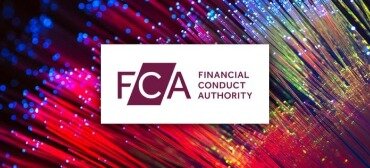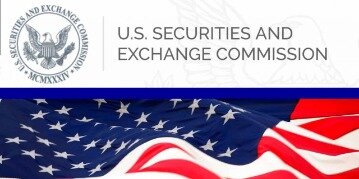Content
The theft is the latest in a series of hacking and theft incidents globally that have affected Bitcoin wallets and exchanges. The most notable incident of this type occurred in early 2014, when Tokyo based Bitcoin exchange Mt. Gox suspended trading and entered bankruptcy protection, following the theft of approximately US$450m worth of bitcoins. In Hong Kong, the March 2015 collapse of Bitcoin exchange MyCoin resulted in losses of over HK$150m to investors in Hong Kong and Guangdong. On Tuesday 2 August 2016, Bitfinex announced that hackers had stolen 119,756 of clients’ bitcoins (worth approximately US$60m at the time of the theft). Hong Kong based Bitfinex was the largest US dollar-denominated Bitcoin exchange globally. Bitfinex suspended all trading, withdrawals and deposits on the exchange pending further investigation – no further detail concerning the cause of the incident is available at the time of writing. The US dollar value of bitcoins fell over 20% in the immediate aftermath of the announcement, as the market processed the significance of the theft to the on-going development of Bitcoin.

Four bar associations in the US have now issued statements on payment in cryptocurrencies for the legal services of their members. The DCB was the most recent one, stating that it is “not unethical for a lawyer to accept cryptocurrency”. Prior to the DCB, official statements were made by the bar associations in Nebraska, New York and North Carolina. There is a slow but steady payment revolution on the rise in the legal sector and, recently, iLaw became one of the first law firms in the UK accepting payment in the form of BTC, ETH or other cryptocurrencies.
Facebook Bans All Ads Promoting Bitcoin
Utility tokens give access to services or products, a bit like pre-payment vouchers. This might include asset ownership rights, entitlement to a share of future profits, repayment of a specific sum of money, or tradability. As each person has their own set of circumstances, we can’t say for sure if we could protect your cryptocurrency investment without first investigating your case. However, you can ask cryptocurrency providers whether FSCS protects their product. In October 2020, the FCA banned the sale of derivatives and exchange-traded notes to retail consumers that reference certain types of cryptoassets.
- Regulators have primarily focused their attention on initial coin offerings and exchange trading – functions that resemble well-understood activities in traditional financial markets.
- The high-profile brothers, who run the Gemini exchange, aim to develop industry standards, promote transparency and work with regulators including the U.S.
- The existing regulation effectively prevents the secondary market of security tokens, as securities may only be traded on a regulated trading venue and trading on a regulated venue requires the registration of the securities with a central depositary system.
- The question is far from answered in the US, where a crypto wallet KYC rule was proposed by the Treasury Department in December and is set to be finalised in the coming months.
- Security tokens may also include general investments that are underpinned by, or derive their value from, cryptoassets, such as CFDs.
It is unclear at this stage how the Bitfinex theft was carried out given this multi-signature technology. So how can thefts such as those described above occur if Bitcoin is ‘un-hackable’? It is helpful to look more closely at how Bitcoin transactions work to better understand how Bitcoin thefts occur. To find out more about the full range of services Clapham & Collinge Solicitors offer, contact us today on or email us using the ‘Make an enquiry’ form. Cryptocurrencies can facilitate money laundering and tax evasion due to the traders of the commodity being able to remain totally anonymous. Nearly a dozen countries resumed use of AstraZeneca’s COVID-19 shots on Friday as EU and British regulators said the benefits outweighed any risks after reports of rare instances of blood clotting that temporarily halted inoculations.
Regulatory activity in this area is likely to continue to evolve in 2018 and should therefore be factored into any ICO structuring discussions as early as possible. On 25 February 2018, the Israeli Supreme Court, in what appears to be a landmark decision, granted temporary relief in favour of a crypto-currency trading company, Bits of Gold Limited against its bank, Bank Leumi . At the end of 2017 Allen & Overy (A&O) assisted Nivaura with the issue of the world’s first cryptocurrency denominated, blockchain settled bond for Luxdeco, an online retailer of luxury furniture. The action plan covers a wide range of topics, including a proposal for an EU Regulation on crowd-funding, setting up an EU Fintech Lab and continued monitoring of developments in crypto-assets and Initial Coin Offerings . Members of Washington, D.C.’s Financial Services Regulatory and Litigation and Investigations groups recently authored an article on U.S. and global cryptocurrency anti-money laundering risk considerations.
About Our Crypto Currencies News
We also use cookies set by other sites to help us deliver content from their services. We’d like to set additional cookies to understand how you use GOV.UK, remember your settings and improve government services. As with all high-risk, speculative investments, consumers should make sure they understand what they’re investing in, the risks associated with investing, and any regulatory protections that apply. Investment Week helps enlightened investment professionals to grow revenues and manage risk by reading the market more astutely via this industry leading title. David Cumming, Aviva Investors’ chief investment officer for equities, last year witnessed turbulent times for UK equities but he remains positive about the market in which he has a personal as well as a professional stake. This interactive briefings will bring together senior fund selectors with leading fund managers running sustainable and ESG strategies to hear how they are navigating this rapidly-evolving part of the market, cutting through the greenwash and where they are finding opportunities. Deutsche Bank interviews leading industry experts at companies such as IBM, ConsenSys, Digital Asset, Hyperledger, uPort and R3 to find out how DLT technology will change our lives.
In addition, allowing individuals to benefit from a tax deferral when financing a company with cryptocurrencies would encourage holders of cryptocurrencies to reinvest their gains in the real economy. For France to become a true hub for cryptoassets start-ups, many reforms still need to be made, including the following. In 2011, a French company that received wire transfers from European clients of MtGox successfully argued before the Central Bank that it should benefit from the right to a bank account set forth in Article L. However, the bank later managed to close the bank account by claiming that the company was operating as an unlicensed payment services provider. With regard to utility tokens, in theory, VAT rules should be applicable, as soon as services are provided or goods are delivered in exchange for tokens.
The end of suspensions will kick off a test of public confidence, both in the shot and in drug regulators whose conclusions are under unprecedented scrutiny, as virus variants spread and the global death toll, now at nearly 2.7 million, rises. Indonesia joined Germany, France and others in re-administering the shots after they suspended vaccinations on reports of around 30 cases of rare brain blood clots, after millions of injections, that sent scientists and governments scrambling to determine if there was a link. US account holders will be able to deal in digital coins, including Bitcoin, Ethereum, Bitcoin Cash and Litcoin in the coming weeks and plans to expand to Venmo and some countries in the first half of 2021. However, there have been major moves toward the mass adoption of digital currencies in recent months. Earlier this month, the City watchdog warned consumers that they should be prepared to lose all their money if they invest in products promising higher returns from virtual currencies such as Bitcoin. Bitcoin (BTC-USD) has suffered its worst week in months, dipping to below $30,000 (£21,900), before recovering slightly, amid rising fears of tighter regulation.
Rival Cryptocurrencies Quietly Gaining Ground On Bitcoin
A Bitcoin wallet is loosely likened to a bank account in a traditional banking setting. Bitfinex operates a Bitcoin exchange, where users can trade their bitcoins for real-world currency. It is likely that far wider and complexed legislative updates will be required in order to keep up with the ever-expanding and developing world of cryptocurrencies.
This article provides an overview of the efficiencies gained by using this infrastructure for bond issuances, focusing on one case study. Cryptocurrency exchanges and the cryptocurrency trading market have generally been unregulated so far in Poland. There are no pending legislative proposals aimed specifically at curbing cryptocurrency trading; however, upcoming new anti-money laundering legislation and recent steps taken by the Polish Financial Supervision Authority may adversely affect the Polish cryptocurrency market. Over the last few years, digital assets did not appear to fall within scope of French law or regulation as they could not be characterised as e.g. currency, electronic money, financial instruments. Earlier this month in AA v Persons Unknown, the Commercial Court awarded a freezing order against a number of defendants in respect of Bitcoin which the claimant had paid in ransom after being hacked.
In a proactive move, The Japan Blockchain Association and the Japan Cryptocurrency Business Association are expected to merge to create a new self-regulatory organization to strengthen self-regulation which, if approved, could act as an independent regulatory body of the government. This has alleviated some of the fears in the industry of any major regulation being implemented any time soon and opens up opportunity for the industry to work with governments and take action to ensure this delay of regulation becomes permanent. The discussions around Cryptocurrency regulations have even reached as high as the recent G20 Summit in Argentina .
Unregulated cryptoasset firms that do not stop trading by 10 January 2021 are at risk of being subject to the FCA’s criminal and civil enforcement powers. The FCA is advising all cryptoasset consumers to check if the firm they use is on the FCA’s register, or on the regulator’s new list of firms with temporary registration. If they are not listed, and the firm is not entitled to continue trading after 10 January 2021, then consumers are advised to remove their funds immediately. The newly-established temporary registration regime allows cryptoasset firms to resume trading until 10 January 2021, or face enforcement action. 30 EBA, Report with advice for the European Commission on cryptoassets¸ 9 January 2019, pp. 12–13. With regard to tax, the tax reporting applicable to individual investors could be simplified. The tax and accounting regime applicable to companies owning cryptocurrencies should also be clarified.
3.86% of the UK general population, or 1.9 million people, are estimated to own cryptocurrencies according to the FCA’s latest report. Most of the holders possess the relevant technical knowledge of the assets as well as an understanding of the associated risks. These findings are significant as they represent a spike of 2.35% of the population over one year. The role of exchanges, particularly non-UK ones, is notable as more than half of crypto owners use their services.
However, the environmental impact of cryptocurrency mining has been widely criticised recently, and it seems unlikely that the government will take the risk of granting these benefits to cryptocurrency miners. The French mining industry is almost non-existent, as electricity prices have been too high to make mining profitable in the past few years.48 However, many individuals mine cryptocurrencies as a hobby or a side job. Finally, in March 2018, the G20 finance ministers asked the Financial Action Task Force to clarify how its standards apply to cryptoassets. In October 2018, the FATF stated that ‘jurisdictions should ensure that virtual asset service providers are subject to AML/CFT regulations, for example conducting customer due diligence including ongoing monitoring, record-keeping and reporting of suspicious transactions. They should be licensed or registered and subject to monitoring to ensure compliance.’40 In 2019, the FATF also updated its guidance for a risk-based approach on virtual assets and virtual asset service providers.
In this article, we will explain the structure of the two bonds that were issued, through the Financial Conduct Authority’s second regulatory sandbox and analyse some of the legal issues presented. We will examine the end to end automation of a securities issue, with a particular focus on Nivaura’s Legal Markup Language and will then turn to the question of whether cryptocurrency is money or not.
Will Bitcoin ever go away?
The reward will continue to halve every four years until the final bitcoin has been mined. In actuality, the final bitcoin is unlikely to be mined until around the year 2140.
Patent and Trademark Office database, analysed by CoinDesk, indicates that there were 390 patent applications broadly related to blockchain technology published between January and July of this year. On Monday, September 25, the United States Securities and Exchange Commission , the U.S. regulator of the securities industry, announced two new initiatives that are likely to impact the blockchain and cryptocurrency industries. In further developments covering the regulation of initial coin offerings , the European Securities and Markets Authority is the latest body to issue a warning to investors of the high risks relating to token sales. These follow the tone and content of announcements of other regulators including the FCA, which has previously flagged the untested nature of the technology, liquidity of tokens and level of disclosure provided by issuers. Last year saw an explosion in interest in blockchain infrastructure and how it might be employed in financial markets.
New legislation has been introduced by the Swiss Federal Council which aims to cut the red-tape on security token transfers, facilitate claims of ownership over a bankrupt’s crypto estate and details how trading platforms and DLT providers can secure a license. This recent incident shows that cryptocurrencies present broader issues than AML risk. Users of cryptocurrencies suffering losses can file a criminal complaint and pursue civil remedies. Any such process may be complicated by the legal and regulatory uncertainty regarding cryptocurrencies, challenges in cross-border enforcement and, where relevant, insolvency. Other major jurisdictions are at varying stages of recognition and regulation of cryptocurrencies. One approach has been to define cryptocurrencies as a subject matter to which the existing regulatory framework applies. The second approach has been to introduce a new form of licensing and crytocurrency specific regulations.
Perhaps the biggest news however, is that of the Winklevoss twins’ intention to create the Virtual Commodity Association, a self-regulatory organisation meant to police digital-currency markets and custodians in the USA. The high-profile brothers, who run the Gemini exchange, aim to develop industry standards, promote transparency and work with regulators including the U.S. The FCA is aware that some firms are offering investments in cryptoassets, or lending or investments linked to cryptoassets, that promise high returns. Investing in cryptoassets, or investments and lending linked to them, generally involves taking very high risks with investors’ money.
Access to banking services has long been one of the major struggles of French crypto-related companies. During many years, regulatory authorities only mentioned cryptocurrencies in relation to financial crime, money laundering or terrorism financing, and thus bank employees are understandably wary. In addition, the ability of bank employees to open bank accounts to these companies is often limited by the bank’s internal anti-money laundering policy.
In January 2020, BCB Payments Ltd became the first crypto asset firm to secure an API license from the FCA under the Payments Services Regulations 2017. The grant shows a maturing of the cryptocurrency industry in the UK, as it integrates further into mainstream investment and payment processes.
Falling Bitcoin Price Highlights New Fears Around Digital Money
This measure greatly simplifies tax accounting and reporting, although individual investors still need to accurately track their transactions to be able to justify their gains. The AMF can now grant its approval (or ‘visa’) to public offerings of tokens that comply with the requirements set out by the PACTE Act. Obtaining the AMF’s approval is optional for all ICO issuers; no ICO will be forbidden in France for lack of approval, although unapproved ICOs are subject to marketing restrictions. The AMF expects that ICO promoters will apply for the approval, as the global reputation of the AMF would serve as proof of their trustworthiness and help them market their ICO in foreign jurisdictions, as well as allow them to freely sell their token to French investors. A parliamentary report of 30 January 2019 on virtual currencies49 suggested that French miners be legally included in the list of ‘electro-intensive industries’, and thus exempted from the domestic tax on final electricity consumption . This exemption could lower electricity costs by a third, thus making France more attractive for miners.

Particularly in light of the developments in ESG and sustainable finance highlighted above, it is possible that companies seeking to issue cryptocurrencies to investors may one day be required to comply with similar climate-related disclosure requirements. HM Treasury is currently consulting on establishing a new regulatory framework for so called “stable coins” that aim to maintain stability in their price, typically by linking their value to stable assets such as fiat currency.
The Fifth Anti-Money Laundering Directive will probably need to be further amended to comply with these recommendations. Napoleon AM launched a FPS invested in digital assets in November 2019.25 To deal with the issue of the depositary, Napoleon AM decided to purchase cash-settled derivatives on Bitcoin listed on the Chicago Mercantile Exchange, which qualify as financial instruments, instead of purchasing bitcoins directly. In any case, various regulations will need to be amended to make the registration of securities on a blockchain an attractive option . However, registering securities on a blockchain is only useful insofar as various burdensome or costly processes, such as the vote at general meetings or the secondary market of unlisted securities, are made easier. While the registration of unlisted securities was greatly modernised pursuant to the Ordinance of 8 December 2017 and the Decree, the other obligations to which an issuer is subject with respect to its shareholders have remained the same, thus creating many practical problems.
The California-based payments platform said the launch of its new service would allow customers to buy, hold and sell cryptocurrency directly from their PayPal account. It comes after the combined value of all Bitcoin tokens in circulation reached half a trillion dollars for the first time ever last month, putting it ahead of Visa and making it the world’s largest financial service. This week, incoming US Treasury Secretary Janet Yellen also expressed scepticism over Bitcoin, and concern has emerged over a “double spend” phenomenon that would display a flaw in the cryptocurrency’s software. “The FCA is aware that some firms are offering investments in cryptoassets, or lending or investments linked to cryptoassets, that promise high returns,” the regulator said. The digital currency, which has soared to all-time highs of around $42,000 in January, is now trading at $32,000 per coin as of Saturday afternoon. The Committee on Economic and Monetary Affairs has prepared a draft motion for a European Parliament Resolution on virtual currencies and distributed ledger technology . In our alert, we review the substance of the CEMA motion and offer some early recommendations for companies exploring opportunities in this area.











